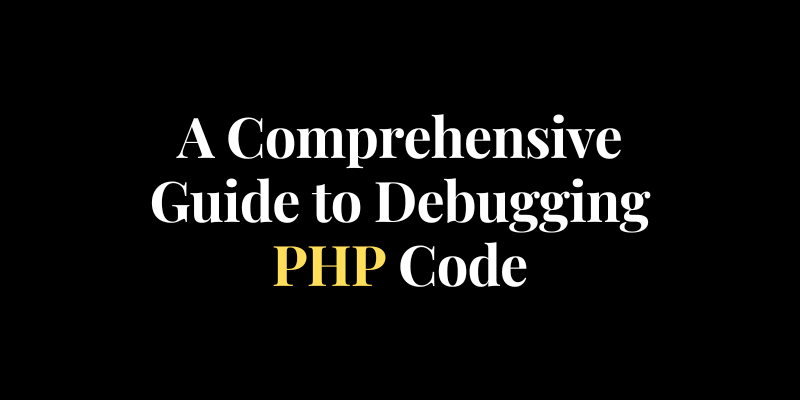Introduction:
PHP is one of the most popular server-side scripting languages for web development and is widely used for building dynamic web applications. As with any programming language, debugging PHP code is essential to the development process.
This article will provide a comprehensive guide to debugging PHP code, including techniques, tools, and best practices. Join PHP Training in Chennai at FITA Academy to become a PHP Developer. PHP Course in Chennai provides 100% placement assistance. Enrol here to get a better future.
What is Debugging PHP Code:
Debugging PHP code is identifying and fixing errors, bugs, and other issues in PHP scripts. This can involve various techniques, such as error messages, logging, and debugging tools. Debugging aims to ensure that PHP code is running correctly and to resolve any issues that may arise during the development process.
Common PHP Debugging Techniques and Tools:
There are several common techniques and tools used for debugging PHP code. These include:
- Error messages: PHP provides a variety of error messages that can help identify issues in code. These messages can be displayed in the browser or logged into a file for later analysis.
- Logging: Logging is the process of recording information about PHP code as it runs and can be used to help identify issues and track down bugs.
- Debugging tools: There are various debugging tools available for PHP, including IDEs (integrated development environments), debuggers, and profilers. These tools can help developers analyse code and identify issues.
Learn the advanced PHP frameworks through PHP Online Course. FITA Academy offers the best PHP course online from experienced trainers. Enquire immediately for course details.
Debugging PHP Code in Practice:
Debugging PHP code in practice involves applying these techniques and tools to real-world scenarios. This can include analysing code for syntax errors, fixing logic issues, and optimising performance. Some tips for effective debugging include:
- Start with the simplest solution: Often, the simplest solution is the best. Start with the simplest possible solution when debugging and work your way up.
- Use a systematic approach: Debugging can be complex, so it’s important to have a systematic approach. This can involve breaking down code into smaller parts or using a step-by-step approach.
- Document your process: Documenting your debugging process can help you track progress and be useful for future reference.
Best Practices for Debugging and Troubleshooting PHP Code:
In addition to these techniques and tips, there are several best practices for debugging and troubleshooting PHP code. These include:
- Testing code thoroughly: Testing is an essential part of the development process and can help identify issues early on.
- Using version control: Version control can help track changes to PHP code and be useful for reverting changes if necessary.
- Collaborating with others: Collaborating with other developers and stakeholders can help identify issues and find solutions more quickly.
Conclusion:
Debugging PHP code is an essential part of the web development process. Using the right techniques, tools, and best practices, developers can quickly and effectively identify and resolve issues in PHP code quickly and effectively. Enrol PHP Training in Coimbatore at FITA Academy for advanced PHP & MySQL training. Professionals at the PHP course in Coimbatore support students to become web development experts with placement assistance.
Read more: PHP Developer Salary For Freshers.

